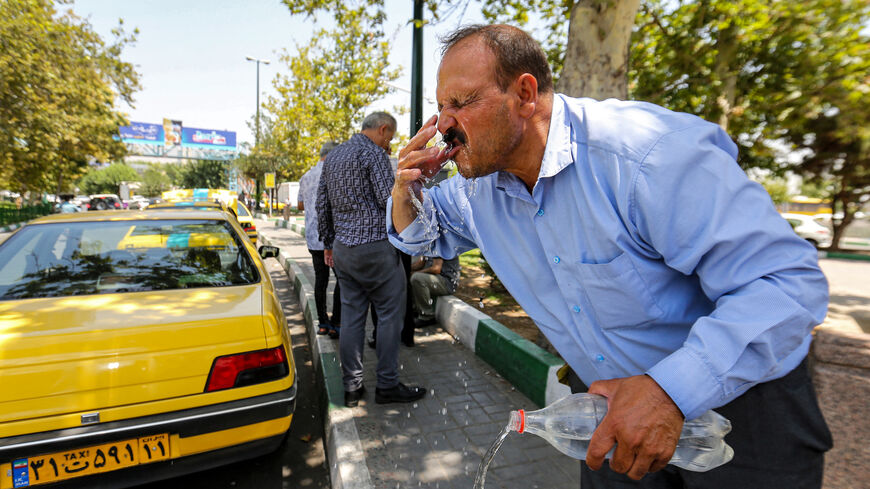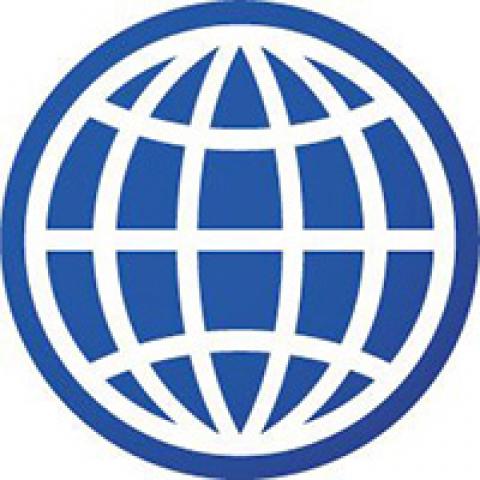TEHRAN — Iranian authorities declared Tuesday and Wednesday emergency holidays to mitigate the "health" implications of the ongoing heat wave gripping almost the entire nation, with average temperatures hovering around 40 degrees Celsius (104 degrees Fahrenheit).
Announced on state television, the decision was made in response to a proposal by the country's Health Ministry, which cited potential health issues based on increasingly grim forecasts for the coming days, advising citizens to remain indoors and hydrated. All medical centers were also placed on a state of high alert in anticipation of overwhelming demands for the treatment of heat-related illnesses.
In the capital, Tehran — the country's largest, densest and most populous city — temperatures are expected to hover above 39 degrees Celcius. Meanwhile, in the southwestern, energy-rich province of Khuzestan, the typically scorching weather could go well over 50 degrees Celsius (122 degrees Fahrenheit).
With the closures covering both the public and private sectors, the plan will mean four consecutive days of stoppage as the two emergency holidays will be followed by Thursday and Friday, the official weekend in Iran.
The heatwave-triggered holidays were the first of their kind in Iran, an indication of how the country is feeling the pinch of global warming. Yet signs and warnings that Iran is one of the worst affected victims of climate change have long been out there. According to data from the country's meteorological office, the pace of warming per decade in Iran has been 0.4 degrees, twice as intense as that of the global average of 0.2 degrees.
🚨CLIMATE: As #Iran's heatwave continues and the country's electricity consumption breaks records one after another, on Saturday, electricity was cut off for 30 high-consuming national and provincial organizations in Tehran. pic.twitter.com/6wGSei42wI
— Tehran Bazaar (@TehranBazaar) July 29, 2023
That translates into new phenomena and natural disasters that were once unthinkable in the country's diverse climatic conditions. Over the past few years, Iranians have witnessed with alarm lower precipitation, consecutive episodes of droughts, as well as unseasonal and deadly floodings, among other calamities. Across the western Zagros Mountains, one of Iran's greenest forest ranges, repeated wildfires have also proven deadly as unequipped volunteers have been struggling to extinguish stubborn flames in the absence of a government response from local officials.
Government reports also suggest that the soaring temperatures have depleted many water resources, with the most notable case being that of Lake Urmia. And as glaciers on mountains as high as 4,000 meters (13,123 feet) vanish, the strain on the ecosystem is heavier, permanently devastating wider flora and fauna and impacting drinking water.
The emergency holidays also come as Iran's power network has lagged behind demand over the past two years. Only on Monday, the country's Energy Ministry advised the public to economize, announcing that the national daily consumption had hit 72,458 megawatts, the highest rate ever recorded in the country's history.
The government's perceived failure to tackle the electricity shortages in a country sitting on the world's fourth-largest oil reserves and second-largest natural gas resources has unsurprisingly sparked loud criticism from economists, environmentalists and ordinary citizens.
Officials denied that electricity supplies had anything to do with the emergency holidays plan, maintaining that the situation at power plants remains stable. Many media outlets, however, speculated that the strain on the power system, rather than public health, was the key stimulator of the decision. Back in June, the Iranian government set the public service working hours to begin at 6 a.m. instead of 8 a.m. in an effort to reverse the staggering electricity consumption during the peak summer season.
The electricity management remained a heated debate on social media as well, where Iranians attacked authorities for their handling of the problem and their alleged refusal to clearly state the reasons behind the emergency holidays.
"The closures are not about the heatwaves; the regional superpower is running out of electricity," many wrote in sarcasm, borrowing from the Iranian government's typical term of self-praise.
"For the sake of the health and dignity of the public, you had better close down this sitting government altogether for two years," wrote economist and entrepreneur Pedram Soltani below a tweet by Iranian government spokesman Ali Bahadori Jahromi, in which he linked the emergency holidays to public health.








